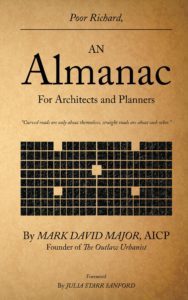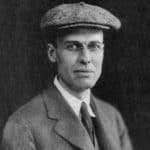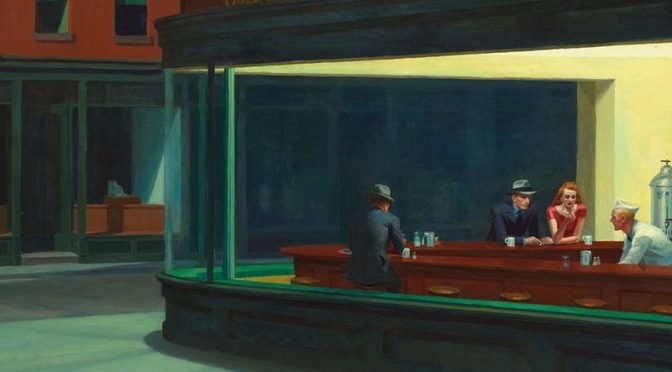Genius of ‘Poor Richard’ Laughs Our Way to Great Cities
“You have to out-think the box before you can think outside of it.” – Poor Richard
JACKSONVILLE, FLORIDA – Architect, urban planner and entrepreneur Mark David Major has seen a lot over 20 years of professional experience in academia and the public and private sector spanning the United States, Europe and other parts of the world. And much of it is bad… or worse. Major was born and raised in the Tower Grove neighborhood of St. Louis and attended Collinsville High School. He is a graduate of Clemson University in South Carolina and the University of London in the United Kingdom with Bachelors, a Masters, and PhD in Architecture.
 Frustrated with the sprawling state of our cities and complicity of professionals charged with shepherding them, he decided to do something when he established The Outlaw Urbanist, a blog dedicated to architecture, urban design and planning issues. Then he began posting on Twitter, to date, more than 600 proverbs and witticisms to help professionals and laymen better understand what makes a great city, great architecture and good practice. The result is a series of sometimes biting, sometimes obscure, but always insightful proverbs using Benjamin Franklin’s 18th century Poor Richard pen name (“A penny saved is a penny earned”). Major admits the Poor Richard moniker is a homage to the wisdom of one of the America’s most famous Founding Fathers but also a subtle dig at American urban studies theorist, Richard Florida, who was recently named the World’s Most Influential Thinker in a published ranking by MIT Technology Review. Major points out, crucially, MIT’s ranking was based on the frequency of online social media mentions and not the content of those mentions. “Too often, we confuse talking with thinking,” said Major, “and we’re too thankful for half-wrong measures when it comes to our cities and architecture because we hope they are also half-right. The results are seldom satisfying.”
Frustrated with the sprawling state of our cities and complicity of professionals charged with shepherding them, he decided to do something when he established The Outlaw Urbanist, a blog dedicated to architecture, urban design and planning issues. Then he began posting on Twitter, to date, more than 600 proverbs and witticisms to help professionals and laymen better understand what makes a great city, great architecture and good practice. The result is a series of sometimes biting, sometimes obscure, but always insightful proverbs using Benjamin Franklin’s 18th century Poor Richard pen name (“A penny saved is a penny earned”). Major admits the Poor Richard moniker is a homage to the wisdom of one of the America’s most famous Founding Fathers but also a subtle dig at American urban studies theorist, Richard Florida, who was recently named the World’s Most Influential Thinker in a published ranking by MIT Technology Review. Major points out, crucially, MIT’s ranking was based on the frequency of online social media mentions and not the content of those mentions. “Too often, we confuse talking with thinking,” said Major, “and we’re too thankful for half-wrong measures when it comes to our cities and architecture because we hope they are also half-right. The results are seldom satisfying.”
 Major’s Twitter postings generated such a positive response that he collected together the first 366 proverbs in Poor Richard, An Almanac for Architects and Planners, first published in Spring 2013 but now available in digital format in Apple iBooks. The book contains a witticism for each day of the year plus one for years “in a state of leaping.” Major has continued writing and posting proverbs on Twitter. He plans to publish a follow-up book, Poor Richard, Another Almanac for Architects and Planners in 2014.
Major’s Twitter postings generated such a positive response that he collected together the first 366 proverbs in Poor Richard, An Almanac for Architects and Planners, first published in Spring 2013 but now available in digital format in Apple iBooks. The book contains a witticism for each day of the year plus one for years “in a state of leaping.” Major has continued writing and posting proverbs on Twitter. He plans to publish a follow-up book, Poor Richard, Another Almanac for Architects and Planners in 2014.
Drawing inspiration from Benjamin Franklin, Thomas Jefferson and many others, Major crafts anew a series of general rules of thumb for anyone interested in the architecture, urban design and planning of our cities. The result is a stunning book marked as much by its breadth and depth as the brevity of its words on the subject. According to leading New Urbanist architect Julia Starr Sanford, in her Foreword to Major’s Poor Richard, the book represents “genius, extraordinary wit, passion for good design and mastery of the history of planning (in a) hilariously righteous epitome of 21st century sense and sensibility.” The unmistakable message of Major’s Poor Richard is we can do better for our cities, we must do better for our cities, and, before the 20th century, we did do better for our cities.
“Thomas Jefferson gave Americans the regular grid. A committee of roadway engineers gave us suburban sprawl. Always walk with giants, never ride in the clown car.” – Poor Richard
Poor Richard, An Almanac for Architects and Planners is a 136-page book with black and white illustrations published by Forum Books, available in print from Amazon, CreateSpace, and other online retailers and digital format from the Apple iTunes Store. Visit the author’s architecture, urban design and planning blog The Outlaw Urbanist for more information.
This article originally appeared on www.stltoday.com.
 Edward Hopper (July 22, 1882 – May 15, 1967) was a prominent American realist painter and printmaker (Source: Wikipedia). Born in 1882, Edward Hopper trained as an illustrator and devoted much of his early career to advertising and etchings. Influenced by the Ashcan School and taking up residence in New York City, Hopper began to paint the commonplaces of urban life with still, anonymous figures, and compositions that evoke a sense of loneliness. His famous works include House by the Railroad (1925), Automat (1927) and the iconic Nighthawks (1942). Hopper died in 1967 (Source: Biography.com).
Edward Hopper (July 22, 1882 – May 15, 1967) was a prominent American realist painter and printmaker (Source: Wikipedia). Born in 1882, Edward Hopper trained as an illustrator and devoted much of his early career to advertising and etchings. Influenced by the Ashcan School and taking up residence in New York City, Hopper began to paint the commonplaces of urban life with still, anonymous figures, and compositions that evoke a sense of loneliness. His famous works include House by the Railroad (1925), Automat (1927) and the iconic Nighthawks (1942). Hopper died in 1967 (Source: Biography.com).



 Major’s Twitter postings generated such a positive response that he collected together the first 366 proverbs in Poor Richard, An Almanac for Architects and Planners, first published in Spring 2013 but now available in digital format in
Major’s Twitter postings generated such a positive response that he collected together the first 366 proverbs in Poor Richard, An Almanac for Architects and Planners, first published in Spring 2013 but now available in digital format in